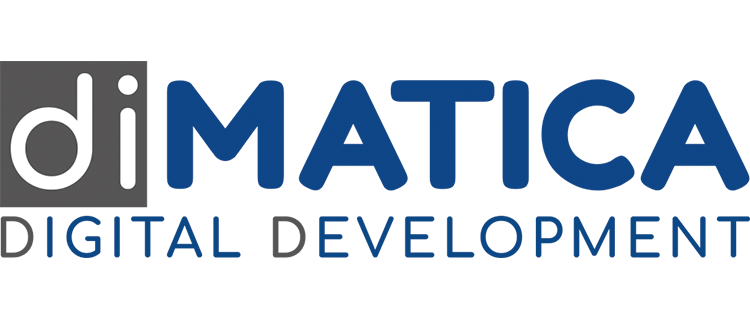dimaticasoftware.com uses cookies and third party cookies in order to analyze navigation and traffic generated for statistical purposes, show the location of our offices, as well as collect your contact information.
What is a cookie?
It´s a file that is downloaded to your computer or other device when you access certain web pages that collect information about your navigation on said website. In some cases, cookies are necessary to facilitate navigation and allow the storage and retrieval of information about the browsing habits of a user or their equipment, among other things and, depending on the information they contain and the way they use their equipment, can be used to recognize the user.
Cookies used identification
Following the guidelines established by the Spanish Data Protection Agency, the cookies used on this website are classified as follows:
- Own:They are those that are sent to the user’s terminal equipment from a computer or domain managed by the editor itself and from which the service requested by the user is provided.
- Third parties: They are those that are sent to the user’s terminal equipment from a computer or domain that is not managed by the editor, but by another entity that processes the data obtained through cookies.
- Session-based: Collect and store data while the user accesses a web page.
- Persistent: They store the data in the terminal so that they can be accessed and processed during a period defined by the person responsible for the cookie – from a few minutes to several years.
- Techniques: They allow the user to navigate through a web page, platform or application and use the different options or services that exist in it.
- Personalisation or configuration: They allow the user to access the service with some predefined general characteristics based on a series of criteria in the user’s terminal, such as the language, the type of browser through which they access the service, the regional configuration from which they access at the service, etc.
- Analyses: They are used to measure the user’s activity when visiting the site or web page and to produce navigation statistics in order to improve the service, information, etc.
- Advertising: They are used to manage the frequency and content of the advertising shown.
- Tracking: They are used to display personalized advertising
The following table shows the website’s own and third-party cookies https://www.dimaticasoftware.com and the purpose for which each one is used.
| OWN COOKIES | |||
|---|---|---|---|
| NAME | PURPOSE ACTIVATION | TYPE | TIME |
| PHPSESSID | This cookie is native to PHP and allows websites to store serialized status data. On the website it is used to establish a user session and to pass status data through a temporary cookie, which is commonly known as a session cookie. These Cookies will only remain on your computer until you close the browserr. | Techniques | session |
| CONSENT, mandatory | Check if the cookie notice has been read or not | Techniques | 1 year |
| WORDPREE_SEC_*, wordpress-settings-*, WORDPRESS_LOGGED_* | Used to customize a WordPress user’s view of the administration interface, and possibly also the main site interface | Techniques | session |
| qtrans_front_language | This cookie remembers the user’s language selection, so it displays the site in the chosen language | Techniques | 1 year |
| THIRD-PARTY COOKIES | |||
| TYPE | NAME | PURPOSE ACTIVATION | TIME |
| Necessary | _GRCAPTCHA | This cookie is set by the Google recaptcha service to identify bots to protect the website against malicious spam attacks. | 5 months |
| Security | visid_incap_2673237 | They preserve the states of the users in all the requests of the page. These own domain cookies are set by a third party service to automatically filter malicious requests. These cookies improve performance and security on the website. | 1 year |
| Security | incap_ses_* | They preserve the states of the users in all the requests of the page. These own domain cookies are set by a third party service to automatically filter malicious requests. These cookies improve performance and security on the website | session |
| Functional | NID | Google NID cookie: a unique identifier used by Google applications to store your preferred information | Expires August 2024 |
Management and deactivation or deletion of cookies
You can allow, block or delete the cookies installed on your computer by configuring the browser options installed on your computer. Please read the help section of your browser carefully to learn more about how to activate “private mode” or unblock certain cookies.
- For more information about the Explorer browser click here.
- For more information about the Firefox browser click here.
- or more information about the Opera browser click here.
- or more information about the Google Chrome browser click here.
- or more information about the Safari browser click here.
Update of the Cookie Policy
Effective date: 02-05-2024
Last update: 02-05-2024
Management and deactivation or deletion of Google Analytics cookies
If you accept the use of cookies belonging to Google Ananlytics, you can subsequently uninstall them by configuring your browser, as indicated, or by installing the Google Analytics disabling add-on: https://tools.google.com/dlpage/gaoptout?hl=es.[/vc_column_text][vc_column_text]You can change your mind about cookie management by returning to your settings .
You can change your mind about cookie management by returning to your settings
